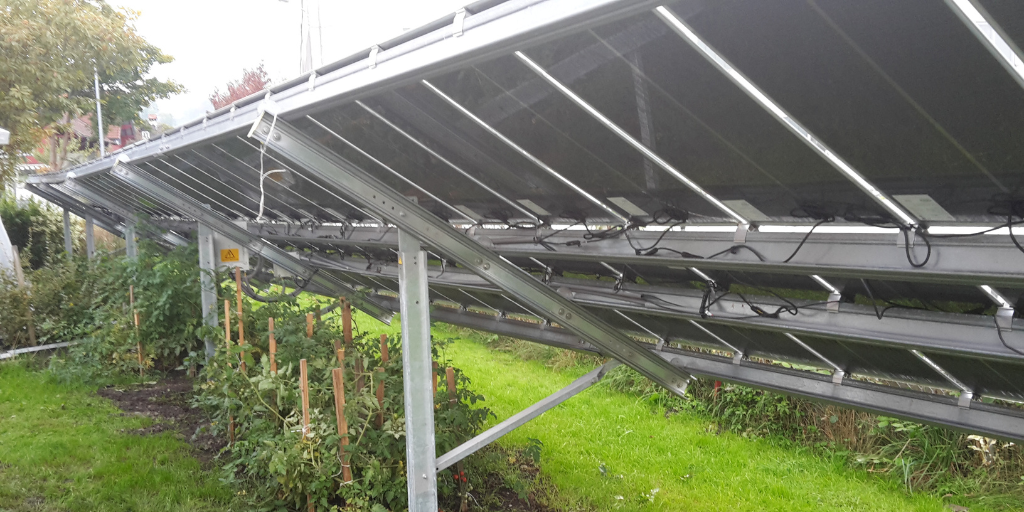In December 2022, the Council of the European Union adopted an emergency regulation aimed at speeding up renewable energy deployment. But Member States have to uphold environmental safeguards and consult the public if they don’t want to end up doing the opposite, warns our new position paper.
Pippa Gallop, Southeast Europe Energy Advisor | 27 February 2023

Author: Asurnipal; licensed under the Creative Commons Attribution-Share Alike 4.0 International license
2022 was a record year in both the solar and wind sectors in the EU, with fifteen gigawatts of new wind capacity installed – a third more than 2021. Solar fared even better, with 41.4 gigawatts installed – no less than a 47 per cent increase compared to the previous year.
These successes show that the EU is capable of ramping up renewables installation, but continuous efforts are clearly needed to overcome its fossil fuel addiction and achieve sustainable decarbonisation.
In addition, the increases are patchy. In the not-overly-sunny Netherlands, solar generation grew by 51 per cent in 2022 alone, making up 14 per cent of electricity generation. Meanwhile in Croatia, it languished at 0.43 per cent.
There are many reasons why solar and wind deployment is not going fast enough in some countries. Obstructive spatial rules are still a problem for wind power in Poland and Hungary. Many countries lack enough administrative staff for permitting procedures, and support schemes have not always been consistent, resulting in stop-start development. Failure to adequately consult the public about project plans also results in resistance and lengthy court battles in some cases.
Using a sledgehammer to crack a nut
Pushed by Russia’s full-scale invasion of Ukraine to speed up renewables deployment, in May 2022 the European Commission put forward its REPowerEU package, which included controversial changes to the Renewable Energy Directive.
But Directives take time, so, using a fast-track procedure that bypasses the European Parliament, on 22 December, the Council adopted Council Regulation (EU) 2022/2577 to speed up renewables permitting.
The Regulation includes useful provisions to speed up small-scale solar and heat pump deployment, but these are seriously undermined by gratuitous clauses which breach EU environmental legislation and circumvent public consultation requirements.
For example, if Member States have defined specific renewable energy zones, individual renewable energy projects – even highly damaging ones such as hydropower and forest biomass plants – can move forward without undertaking project-level environmental impact assessments, as long as a more general ‘strategic environmental assessment’ has been undertaken.
This clashes with the EU’s existing rules on environmental impact assessment and means that the public won’t have to be consulted about individual projects in renewable energy zones, which is both illegal and counterproductive.
Not only EU law, but also the Aarhus Convention guarantees the right for the public to participate in decision-making on projects that may have significant environmental impacts. A strategic environmental assessment can in no way be a substitute for a project-level assessment, as it contains much less detail.
This won’t end well. EU law is already flexible enough to ensure that projects with low impacts do not undergo an environmental impact assessment. So this change will benefit projects with more serious impacts.
Our experience shows that there is nothing more guaranteed to irk people than the feeling that decisions are being taken behind their backs – a fact likely to increase legal challenges against renewable projects, rather than speeding them up.
Environmental safeguards and public participation must be improved, not bypassed
The Regulation leaves a lot of flexibility to Member States in how and whether to apply certain parts of it. The sections on small-scale solar and heat pumps are a must, but other sections are not necessarily. We have therefore produced a position paper providing our views on how the Regulation should be implemented.
Member States must not weaken their environmental standards. Even before the Regulation was adopted, environmental safeguards were not properly applied in many countries and need to be improved, not further eroded.
The Treaty on the Functioning of the EU specifically states that EU environmental law does not prevent Member States from maintaining or introducing more stringent protective measures, as long as they are compatible with the EU treaties. So governments surely cannot be penalised for merely upholding existing EU environmental law.
At the same time, unnecessary delays caused by political obstruction, lack of administrative capacity or having to submit documentation on paper, instead of electronically, urgently need to be tackled – issues which the Regulation does not address.
The biodiversity and climate crises must be tackled together
A balance must be struck between speeding up sustainable forms of renewable energy, applying EU environmental law and preventing legal uncertainty.
Increasing the share of renewable energy cannot come at the cost of action to protect our increasingly beleaguered nature, otherwise we have achieved nothing. Biodiversity is not an optional extra, we need it for everything: for clean water, food, oxygen and climate regulation, medicines and much more besides.
Using renewable energy can help us to protect nature, but only if done thoughtfully. We have to use low-impact technologies and locations, carry out appropriate environmental assessments and properly include the public in decision-making if we want to make a success of the sustainable energy transition.
Read more: Our position paper can be found here
Never miss an update
We expose the risks of international public finance and bring critical updates from the ground – straight to your inbox.
Institution: EU
Theme: Renewables
Location: EU
Project: EU funds and biodiversity
Tags: biodiversity | renewable energy
